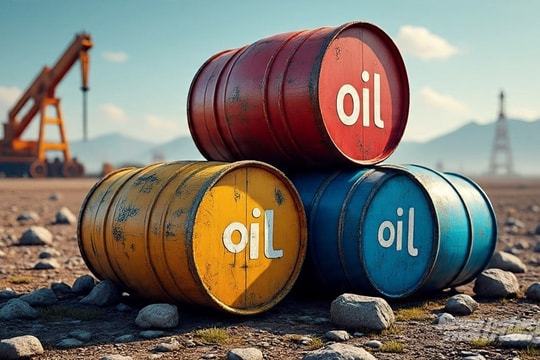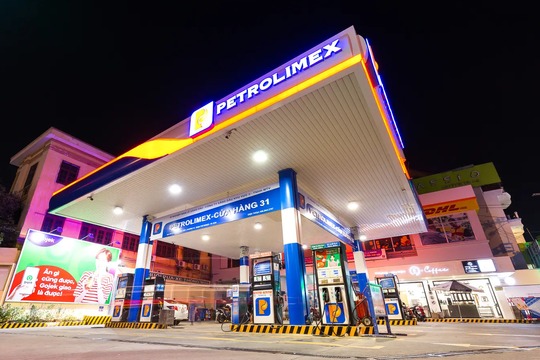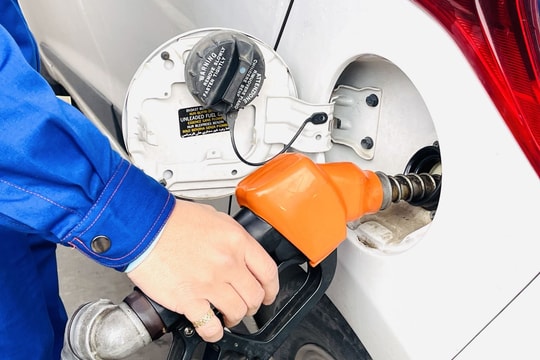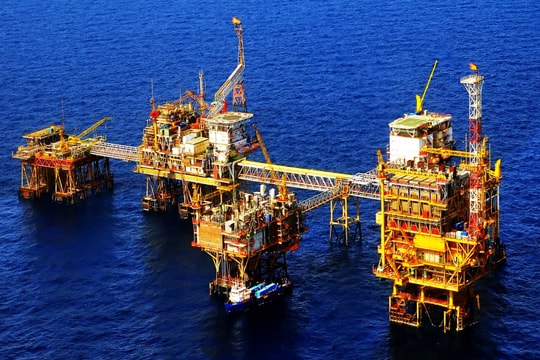Is the import tax on gasoline causing disadvantages to consumers?
The fact that the Ministry of Finance is applying import tax to calculate the base price for petroleum products is not in accordance with legal regulations.
According to signed bilateral and multilateral FTAs, Vietnam is implementing a roadmap to reduce import taxes on gasoline and oil at different levels. For gasoline, it is 20% imported from ASEAN and 10% imported from Korea; similarly for oil products, it is 0% and 5%.
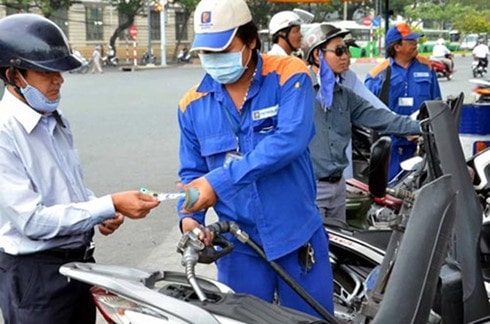 |
| The large difference in import tax has caused the base price to be high, leading to high domestic retail prices for gasoline. (Illustration: KT) |
However, according to Circular No. 48/2016/TT-BTC issued by the Ministry of Finance on March 17, 2016, the import tax rate for gasoline is 20% and for oil products is 7%. At the same time, in Document No. 189/BTC-QLG of the Ministry of Finance, it is also stipulated that the import tax rate to calculate the base price of gasoline is the weighted average import tax based on the import volume from different sources, taking the data of the previous quarter to calculate for the following quarter.
Therefore, the current import tax rate for gasoline and oil applied for the second quarter of 2016 (Document 4536/BTC-QLG dated April 5, 2016) to calculate the base price for gasoline and oil products is 18.35% for gasoline; 2.32% for diesel oil and 0% for fuel oil. The Ministry of Finance's application of this weighted average import rate has revealed major shortcomings, especially the current way of applying the import tax rate for gasoline and oil has caused a large difference, affecting the interests of consumers.
According to Mr. Phan The Rue, Chairman of the Vietnam Petroleum Association, if considered on a legal basis, in Decree 83/2014/ND-CP of the Government on petroleum business, in Section 9, Article 3 stipulates: Base price is the basis for state management agencies to regulate domestic petroleum retail prices; Base price includes 11 factors including import tax.
Also in Chapter II, Joint Circular No. 39/2014/TTLT-BCT-BTC (Ministry of Finance - Industry and Trade) on the method of calculating base price to regulate base price also includes 11 factors including import tax.
“Thus, Decree 83 and Joint Circular No. 39 have both provided specific and transparent guidance on each element, and do not stipulate a quarterly weighted average import tax to form the base price. Therefore, the Ministry of Finance's management by imposing import tax to calculate the base price for petroleum products is not in accordance with Decree 83 and Joint Circular No. 39,” Mr. Rue affirmed.
According to Mr. Phan The Rue, in fact, when the Ministry of Finance imposed taxes according to Document 4536/BTC-QLG dated April 5, 2016, with a weighted average import tax rate of 18.35% for gasoline and 2.32% for diesel, the large difference in import taxes caused the base price to be high, leading to high retail prices for gasoline and oil. This is not beneficial to consumers and if this problem is not resolved, it will increasingly cause public outrage.
Furthermore, according to Mr. Rue, the method of applying the weighted average import tax on gasoline and oil did not fully reflect the changes between world prices and domestic prices. Specifically, in the first management period of the second quarter of 2016, the management agency had to apply the Price Stabilization Fund deduction from 983 VND/liter to 1,017 VND/liter to maintain the retail price of gasoline and oil.
“The openness and transparency of the weighted average import tax method does not convince consumers, experts, media and petroleum businesses. This makes public opinion believe that state management agencies are still using administrative measures to intervene in the petroleum market, while Decree 83 and Joint Circular No. 39 have specific regulations and instructions,” Mr. Rue pointed out.
Faced with the current inadequacies in the calculation of gasoline import tax, Mr. Phan The Rue said that on June 22, the Vietnam Petroleum Association sent a document requesting the Ministry of Finance to implement an import tax rate of 10% for gasoline according to the Vietnam - Korea FTA. For oil products, it is 0% according to ATIGA and apply this tax rate to calculate the base price to adjust the retail price of gasoline.
Mr. Rue also said that the Vietnam Petroleum Association also requested the Ministry of Finance to study and submit to competent authorities to soon adjust some domestic taxes on petroleum products, in order to compensate for the shortage due to the reduction of import taxes according to the tax reduction roadmap as committed.
“In 2017, special consumption tax and environmental protection tax can be increased at a rate appropriate to the reduction in import tax. Increasing these two taxes at a more appropriate rate will ensure stable retail prices, not affect consumer rights, maintain state budget revenue, and create more favorable conditions for petroleum businesses,” said Mr. Rue.
According to Mr. Rue, when Vietnam implements FTAs, Vietnamese importers will focus on sources with the lowest import tax incentives such as the Vietnam - Korea FTA and ATIGA. Therefore, the ability to meet the needs of Vietnamese importers is very large.
Meanwhile, Binh Son Refinery and Petrochemical Plant is supplying about 30% of gasoline output, Vietnam only has to import about 70%. By 2017, when Nghi Son Refinery comes into operation, domestic gasoline production capacity will meet demand for the coming years. In addition, according to Decree 83, the key points must have a mandatory reserve of 30 days plus the national reserve, which will completely ensure energy security for the country./.
According to VOV

